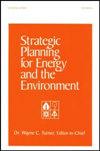Renewable Energy and Economic Efficiency in the Framework of Sustainable Development: Malmquist Index and Tobit Model
Q3 Environmental Science
Strategic Planning for Energy and the Environment
Pub Date : 2021-12-08
DOI:10.13052/10.13052/spee1048-4236.4024
引用次数: 1
Abstract
Today, energy is as important as labour, capital and technology for the growth of countries. As countries grow economically, they try to achieve the same or more amounts of output with fewer inputs. In other words, countries target efficiency based growth. As the economic growth of countries increases, their energy requirements also increase. Regarding countries that are not rich in domestic resources, this increase, imposes significant costs. On the other hand, the finite energy supply in countries rich in domestic resources is an important problem. That is why the phenomenon of renewable energy has become a trend all over the world. In addition to reducing import dependence on energy, new policies are required to reduce the effects of climate changes and to protect natural resources. That is why; renewable energy and economic efficiency are an attractive research area. In the study, efficiency scores were obtained by calculating the Malmquist total factor productivity index in the period 1992–2018 for 10 countries among the N11 countries. Then, the efficiency values obtained by using the two stage estimation method were used as the dependent variables. The test results based on Tobit regression indicated that the increase in the supply of renewable energy positively increases economic efficiency. It can be said that the supply of renewable energy will lead to economic efficiency in the future.可持续发展框架下的可再生能源与经济效率:Malmquist指数和Tobit模型
今天,能源与劳动力、资本和技术对国家增长同样重要。随着各国经济的增长,它们试图用更少的投入实现相同或更多的产出。换句话说,各国的目标是基于效率的增长。随着各国经济增长,其能源需求也在增加。对于国内资源不丰富的国家来说,这一增长带来了巨大的成本。另一方面,国内资源丰富的国家的能源供应有限是一个重要问题。这就是为什么可再生能源现象已经成为全世界的一种趋势。除了减少对能源的进口依赖外,还需要制定新的政策来减少气候变化的影响并保护自然资源。这就是为什么;可再生能源和经济效率是一个有吸引力的研究领域。在这项研究中,效率得分是通过计算1992年至2018年期间11个国家中10个国家的Malmquist全要素生产率指数获得的。然后,使用通过使用两阶段估计方法获得的效率值作为因变量。基于Tobit回归的测试结果表明,可再生能源供应的增加正提高经济效率。可以说,可再生能源的供应将提高未来的经济效率。
本文章由计算机程序翻译,如有差异,请以英文原文为准。
求助全文
约1分钟内获得全文
求助全文
来源期刊

Strategic Planning for Energy and the Environment
Environmental Science-Environmental Science (all)
CiteScore
1.50
自引率
0.00%
发文量
25
 求助内容:
求助内容: 应助结果提醒方式:
应助结果提醒方式:


